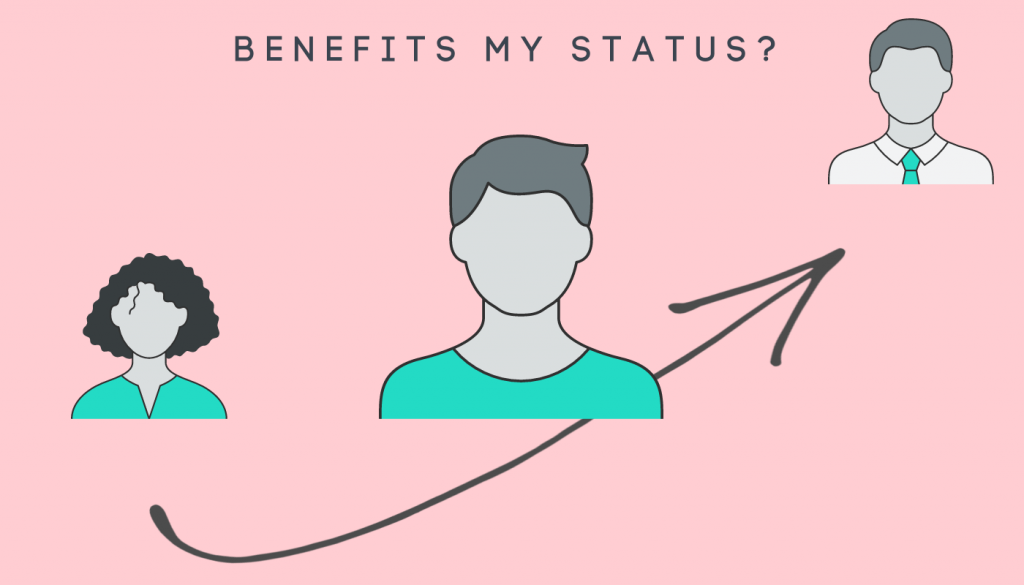Social Status
Have you ever had a gut feeling, as you were about to introduce two friends, that they may not get along? One of these friends is someone you may hold in high regard. The other — while you hate to admit it — is someone you’re a little ashamed of and worry they may embarrass you in front of the other friend. As a result, you may wonder: why am I experiencing shame, and why do I even care?
It all boils down to your own social status. Imagine the following scenario: Tom is asked by his former colleague Lilly for an introduction to his current manager Brian. Lilly, however, held a junior position at Tom’s former workplace. By granting her request, Tom jeopardizes his good name in his manager’s eyes, Brian, and puts his social rank on the line. On the other hand, if the roles were reversed, and Lilly had been superior to Tom, he would more readily go for this introduction, for the sake of his own status.

This phenomenon is also reflected in the commercial promotion sector where the ability to use and bring someone’s reputation into play is capitalized. That’s why it’s widely common to see marketing campaigns with famous faces in social network feeds. Brands use celebrities and influencers to establish a foothold in the feeds and bring awareness to their fan base.
What stands behind this commerce may be referred to as an economy of reputation – treating reputation use as commerce. A business may ask a celebrity to represent their brand so their reputation casts its competence to their brand position. In doing so, a zero-sum game is held over the social ranks of both sides.
These deals are sealed based on each party’s reputation. Influencers have a general price tag — The more popular a celebrity figure, the higher the fee. The same could be said for companies. In cases where a lesser-known firm asks a well-known figure to be their spokesperson, the power dynamics on each side, are uneven. As with Tom and Lilly, when a brand isn’t likely to help that celebrity figure’s reputation, one of two outcomes may play out: an additional incentive is needed, and the price tag goes up, or, because the proposal doesn’t offer any additional benefit to the celebrity from the start, they’ll turn it down.
Our social status rank is dynamic, and each and every acquaintance affects it, whether by improving or degrading it. So much so that we might even refuse a request to avoid a conflict or downgrade our perceived competence. We seek to solidify our social status by whom we engage with, among other things.

